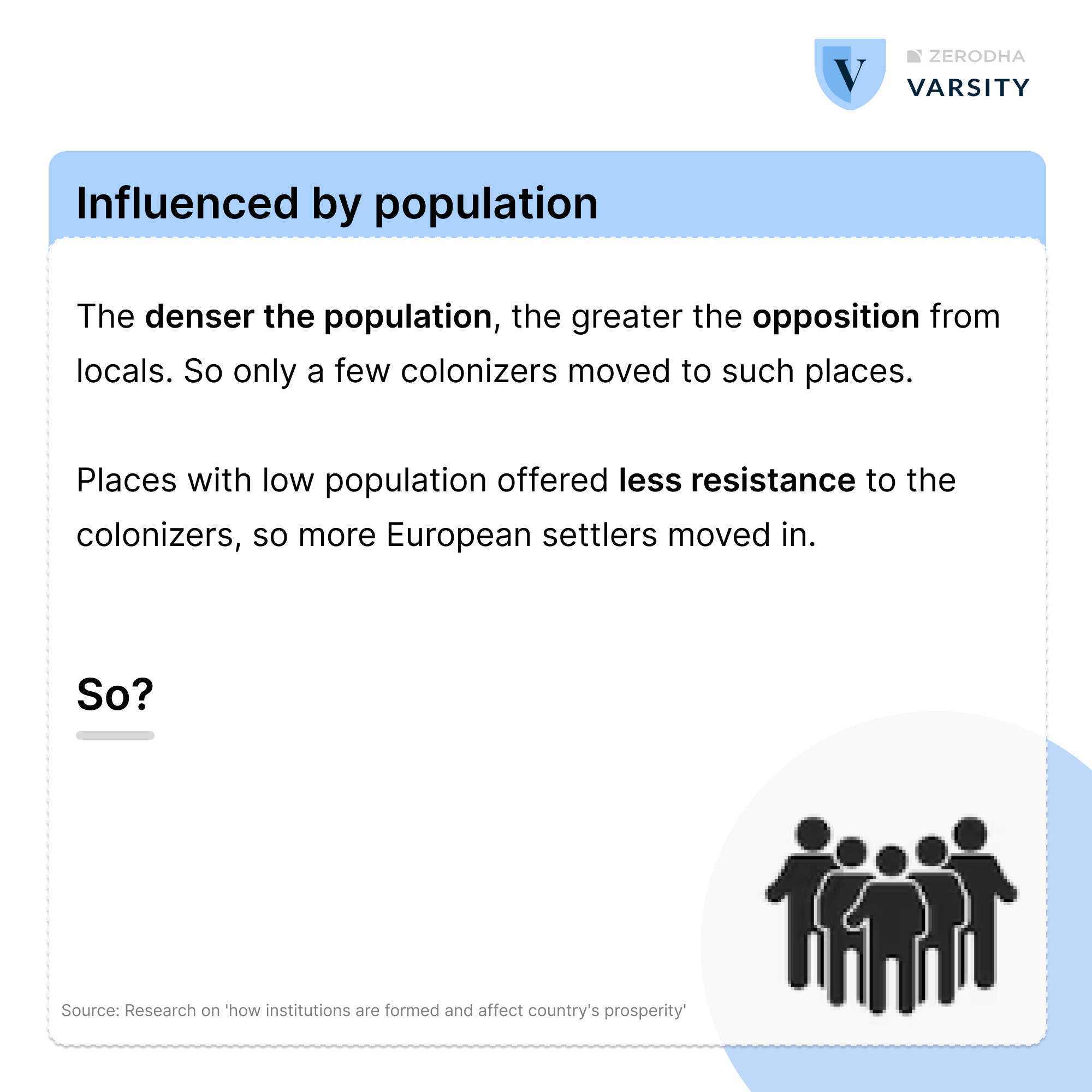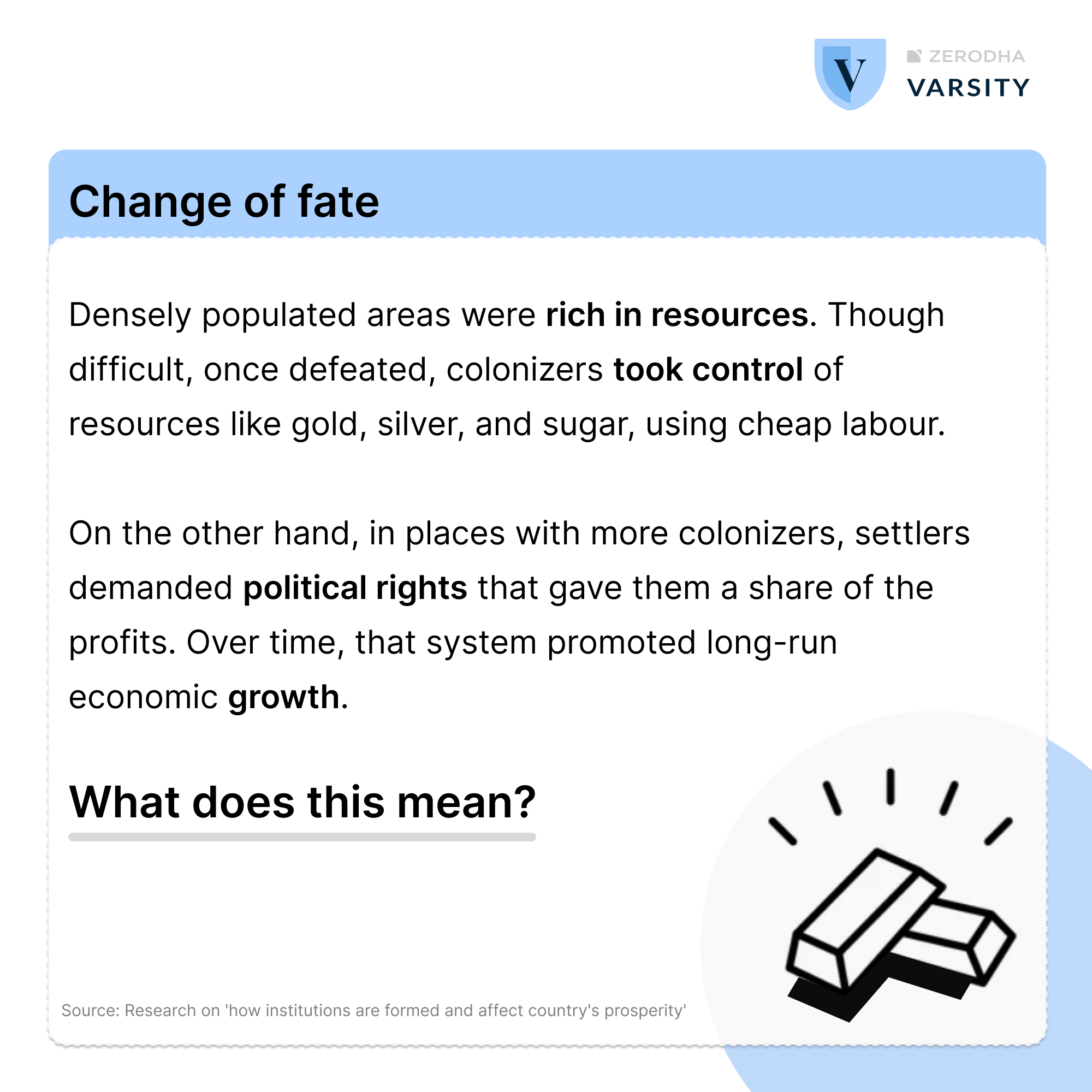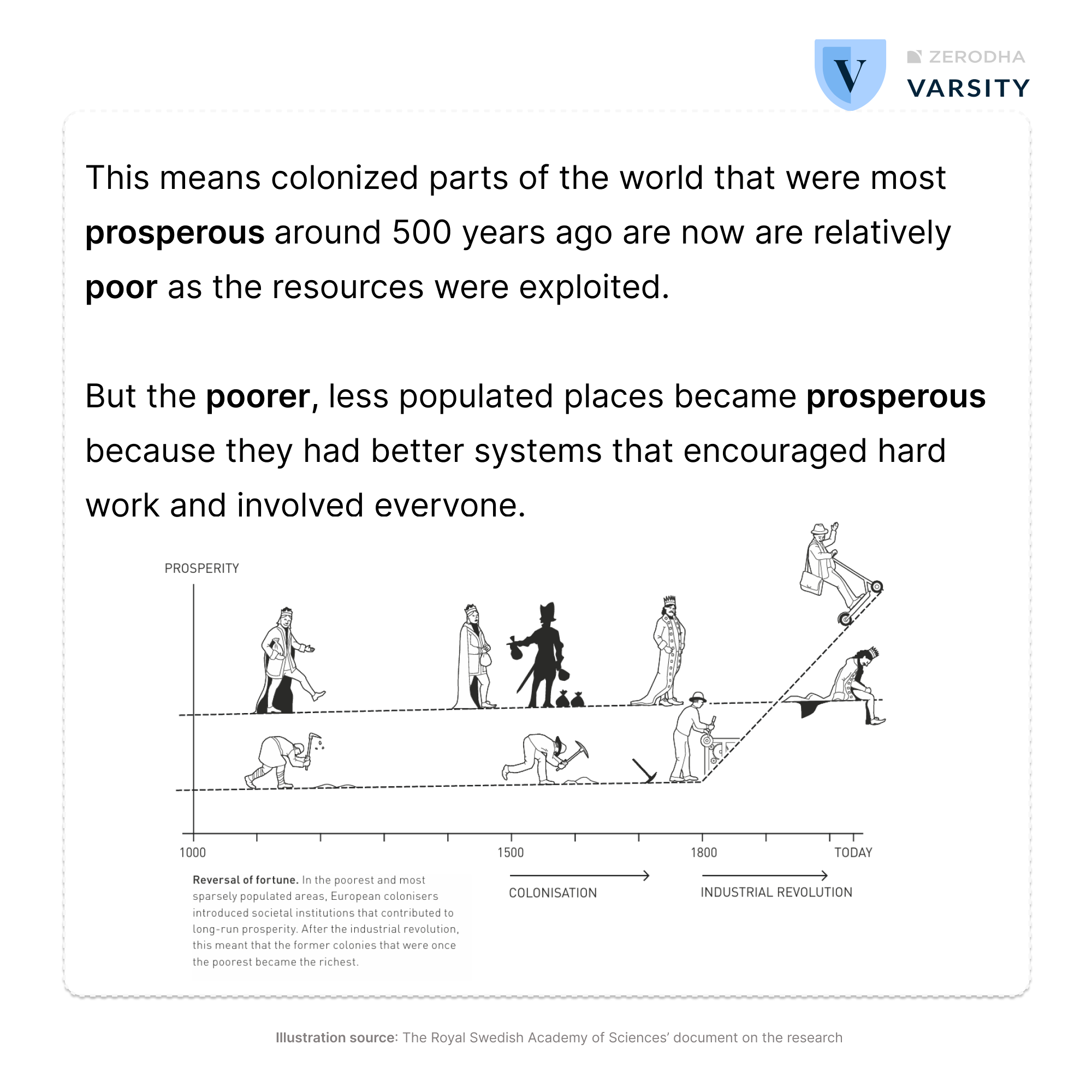
The 2024 Nobel Prize in Economics explained in graphs: what it tells us about India’s prosperity
We typically think that a country’s wealth is determined by its climate or natural resources. However, Nobel Prize-winning research has shown that strong institutions—like fair laws and effective governance—are even more crucial.
In 2024, Daron Acemoglu, Simon Johnson, and James A. Robinson were awarded the Nobel Prize in Economics for their research, which highlighted how good institutions fuel strong economies. Their research demonstrates that countries with fair rules and robust governance tend to flourish while those with weak systems struggle.
It sounds intuitive, but proving this took over two decades of research. They traced the impact of institutional frameworks set up during European colonization and ruled out the importance of other factors like climate or natural resources. The research also gave reference to systems in India during that colonization period and how the country – once one of the most prosperous countries compared to some of the developed countries – has lost its sheen.
Here, we break down their findings and present them through easy-to-read graphics.









